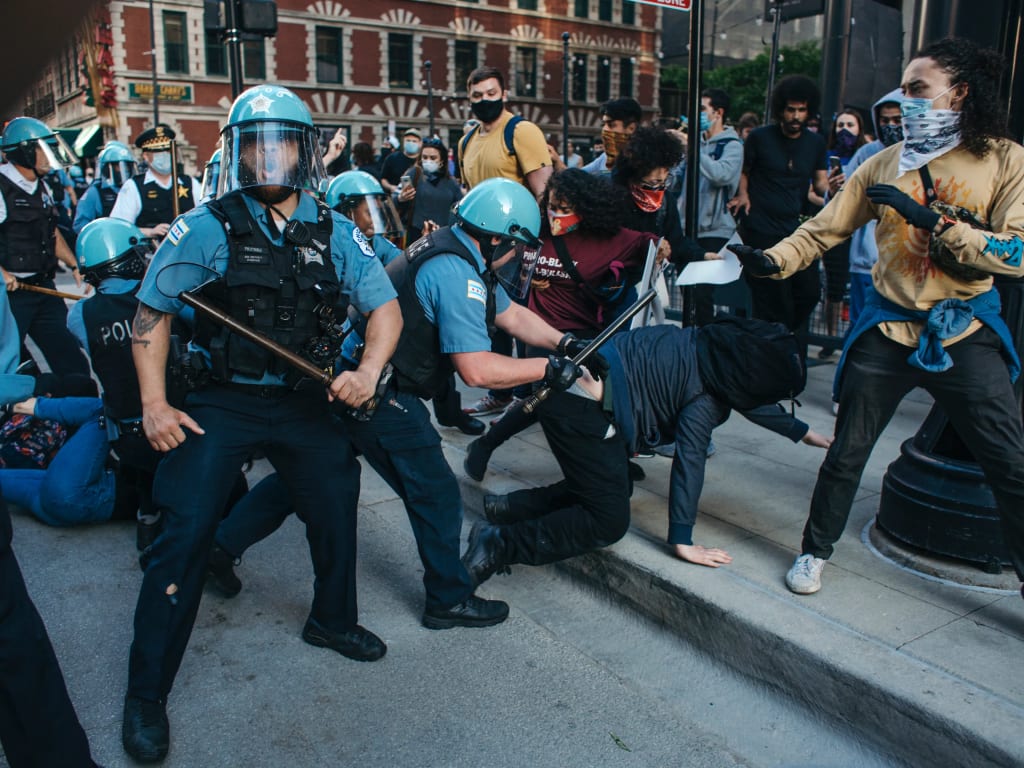
CONTEMPT OF COP: WHY COPS KILL
Victor 297
Retired Montgomery County, Maryland police captain Sonia Pruitt wrote in her recent essay published on CNN.com in the wake of the murder of Tyre Nichols by the Memphis Police Department, “ Law enforcement has conducted training time and again and revised policy over and over, and yet we still have too many unnecessary deaths at the batons, feet, hands, fists, and guns of police.” Until Memphis, we all thought that the nearly non-stop murder of African-Americans at the hands of police was the heinous and hideous hand of racism holding down innocent black men, and sometimes women, until they died under its weight. But now that tidy interpretation has collapsed under the weight of the expandable batons of five Black Memphis police officers who clearly did not get the message that Black Lives Matter. What the heck is going on with America’s police?
There is a not-so-well known phenomenon in law enforcement called contempt of cop, and it is quite simply the refusal to obey a police command. Sounds trivial, to a reader who is not a cop, but police officers are taught that their authority is only as strong as the respect they command in the field. They learn to develop “officer presence” and to exude authority, but what does an officer do when a subject refuses to follow simple verbal instructions, such as the ubiquitous “get on the ground” command? Does he resort to force? Is that force justified?
Let us illustrate. What if an officer tells you to get out of your car? Ninety-nine percent of people will obey out of fear, but one percent will refuse. What are the officer’s options? Break a window and forcibly remove the driver? Issue the command again, only louder? Wait it out? These are questions that officers grapple with, but a percentage of cops will take the refusal as disrespectful to their stature as an officer of the law, and respond with rage. This is contempt of cop.
Two turning points in both the George Floyd and Tyre Nichols murders served as the tipping points that escalated a simple arrest into an unhinged frenzy of cop rage. After the bumbling Minneapolis cops finally cuffed Floyd, Chauvin tried to shove him in his vehicle. Floyd resisted and screamed that he was claustrophobic, so Chauvin throws him to the ground and chokes the life out of him. In broad daylight, with witnesses and video. Why? Because Floyd was just pulled out of the same make vehicle, Chauvin interpreted this as resistance, and he took it personally. In his paltry cortex, he had to save face, which is why he did not mind the world bearing witness while he casually commits murder.
Tyre Nichols, likewise, wouldn’t fully assume the prone position; he lay on his side instead of his stomach with a cop stuck to each limb. FIVE POLICE OFFICERS, all of who were twice Nichols’s size, could not handcuff him. And what happened next is point blank proof that these street cops were more concerned with street justice than proper procedure, they pepper sprayed him instead of handcuffing him where he laid. He had defied their authority -willfully- so they made him pay, by massacring him.
Police brutality can only proliferate when it has the cooperation of other cops. A successful cover-up requires the complicity and silence of one’s cohorts. Everyone knows the drill. He reached for my weapon. I feared for my life. Police lie in their reports and on the witness stand, uncontested. Two days after Nichols’s murder, the New York Times ran a story about the discrepancies between the official police report and the camera evidence. They did not match. At the Floyd scene, the cover-up began as soon as the ambulance arrived. A cop can be heard speaking to a peeved paramedic, “he resisted. We had to do it.” This singular statement is so telling of the incompetence of the Minneapolis Police because it is a complete misrepresentation of the use of lethal force, the proper use of which is drilled into every police recruit at the academy. There was not even a huddle to get everyone’s story straight because they have done it before.
Floyd was killed for one reason: retribution. If Floyd could not be loaded into a police vehicle, which for some reason are built only for midgets, then a transport van should have been summoned. But contempt of cop was on the loose, and the encounter spins off the rails when one officer says to Floyd “You ain’t listening to nothing we’re saying, so we’re not going to listen to nothing you are saying.” And what was Floyd saying? I can’t breathe. It was no longer an arrest; it was a lesson in servitude.
I served in the United States Border Patrol in the early nineties. I was assigned to the Chula Vista station in the San Diego sector. The Tijuana border was the busiest in the world, and on any given night a patrol agent could expect to arrest more people than most police officers do in their entire careers. We entertained no disrespect because we used fear - the ingrained fear of law enforcement that every Mexican has - to control groups that could number 50 to 100. If you ran, you got thumped. This is our border and these are our rules. But the one thing you did not see was an unfair fight. Why? Because we were not cowards. Cops who kill defenseless people are but one thing: scared bullies. Police departments are full of recruits who join the force to exact revenge for the bullying they endured during childhood. They seek power, not justice. They punish, rather than protect.
The few bad apples theory of policing is bantered around by lawmakers in the wake of yet another killing, but it is myopic because it ignores how apples go bad in the first place. Periodic purges of the ranks just leaves more room for more bad apples. Cops wield enormous power - the power to kill- which we hand over to anyone who survives six months at the academy. And therein lieth the lesson
About the Creator
L. Erin Giangiacomo
I'm a writer because I can't hold a job and I have no friends. B.A. English Literature, J.D.






Comments
There are no comments for this story
Be the first to respond and start the conversation.